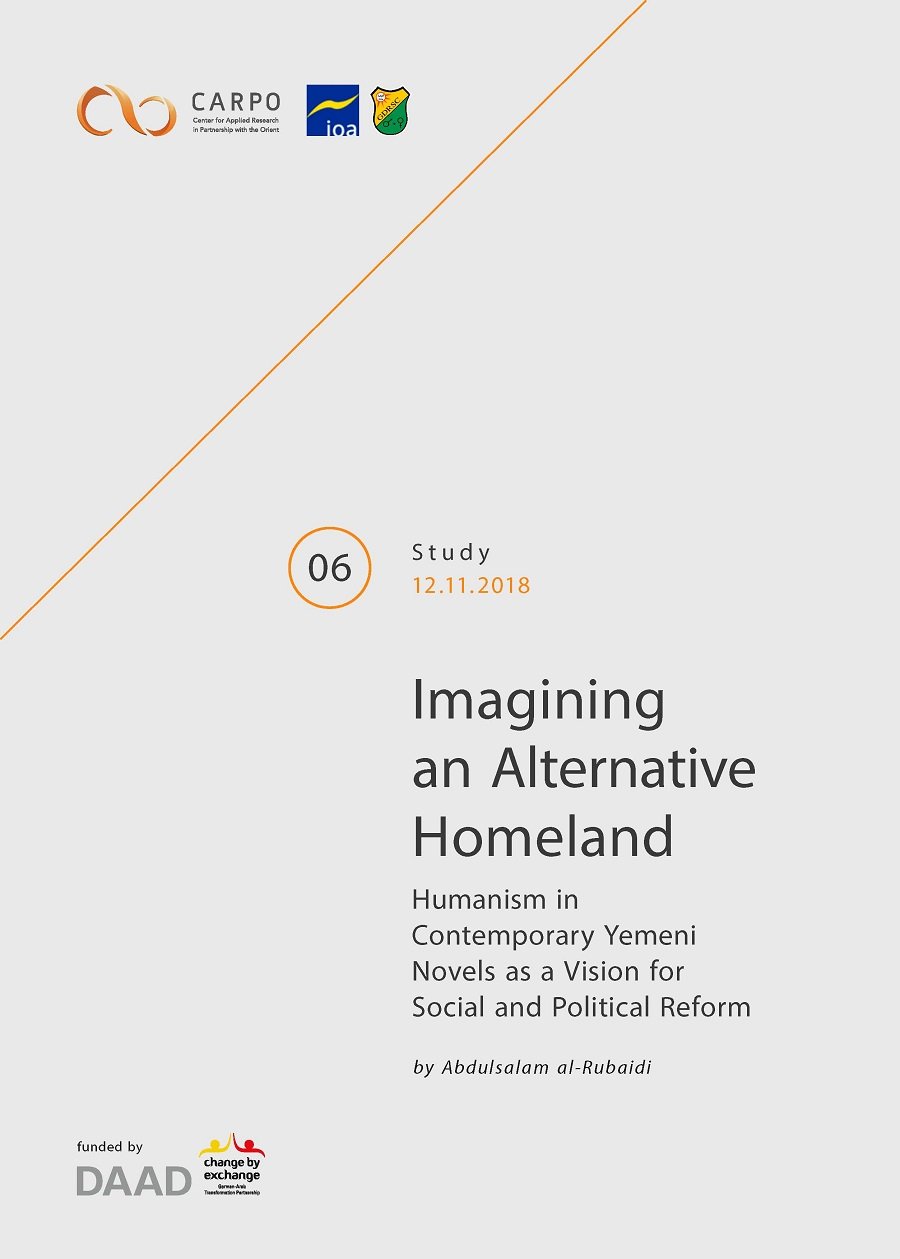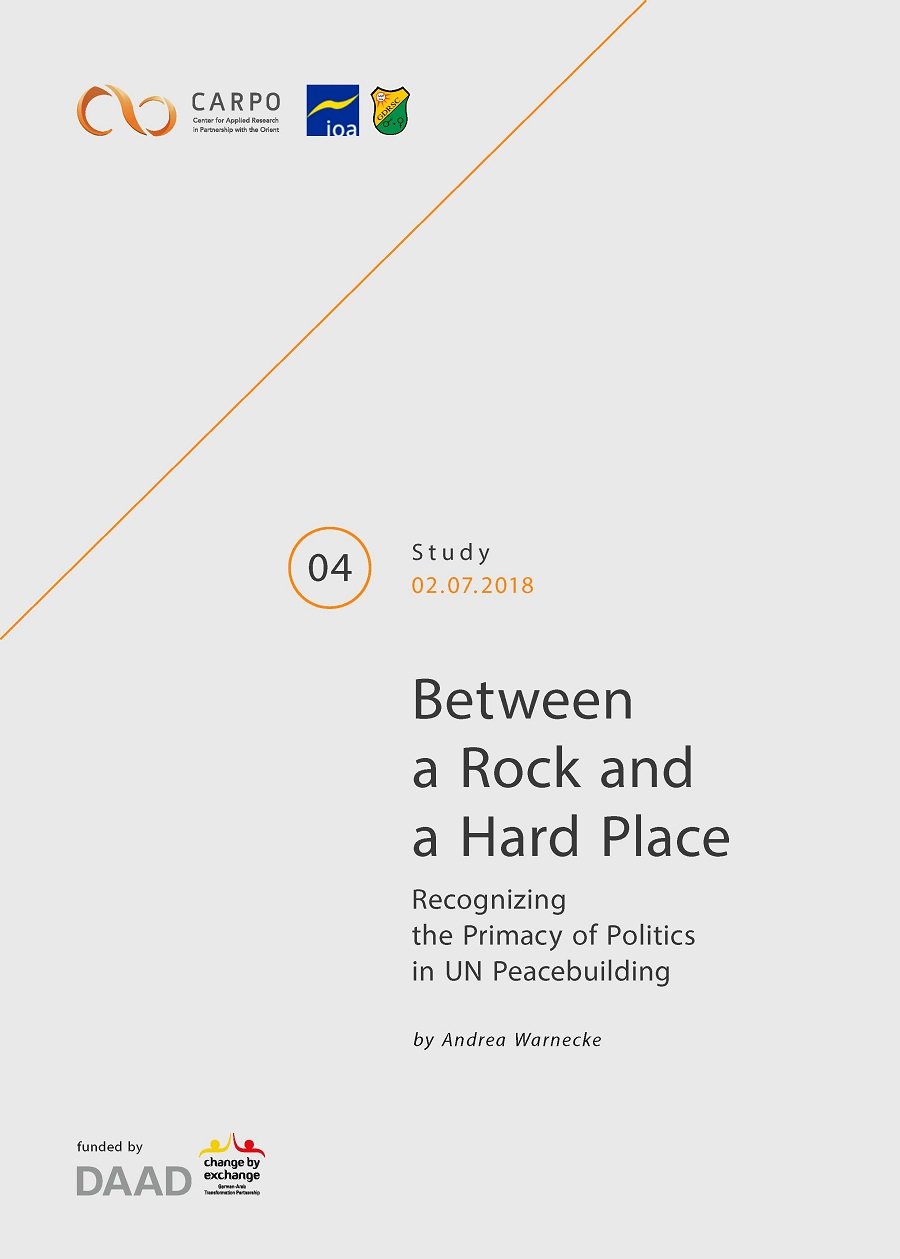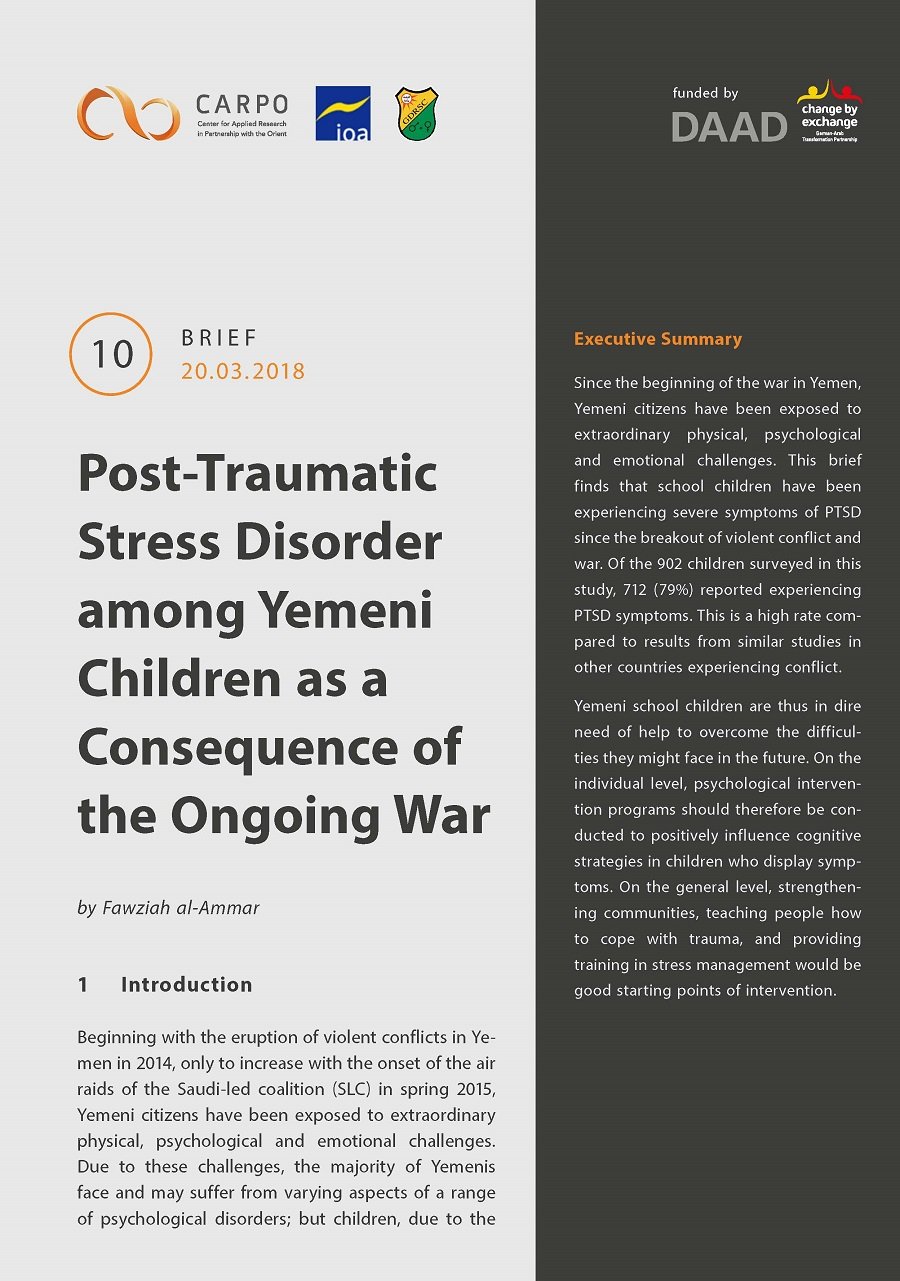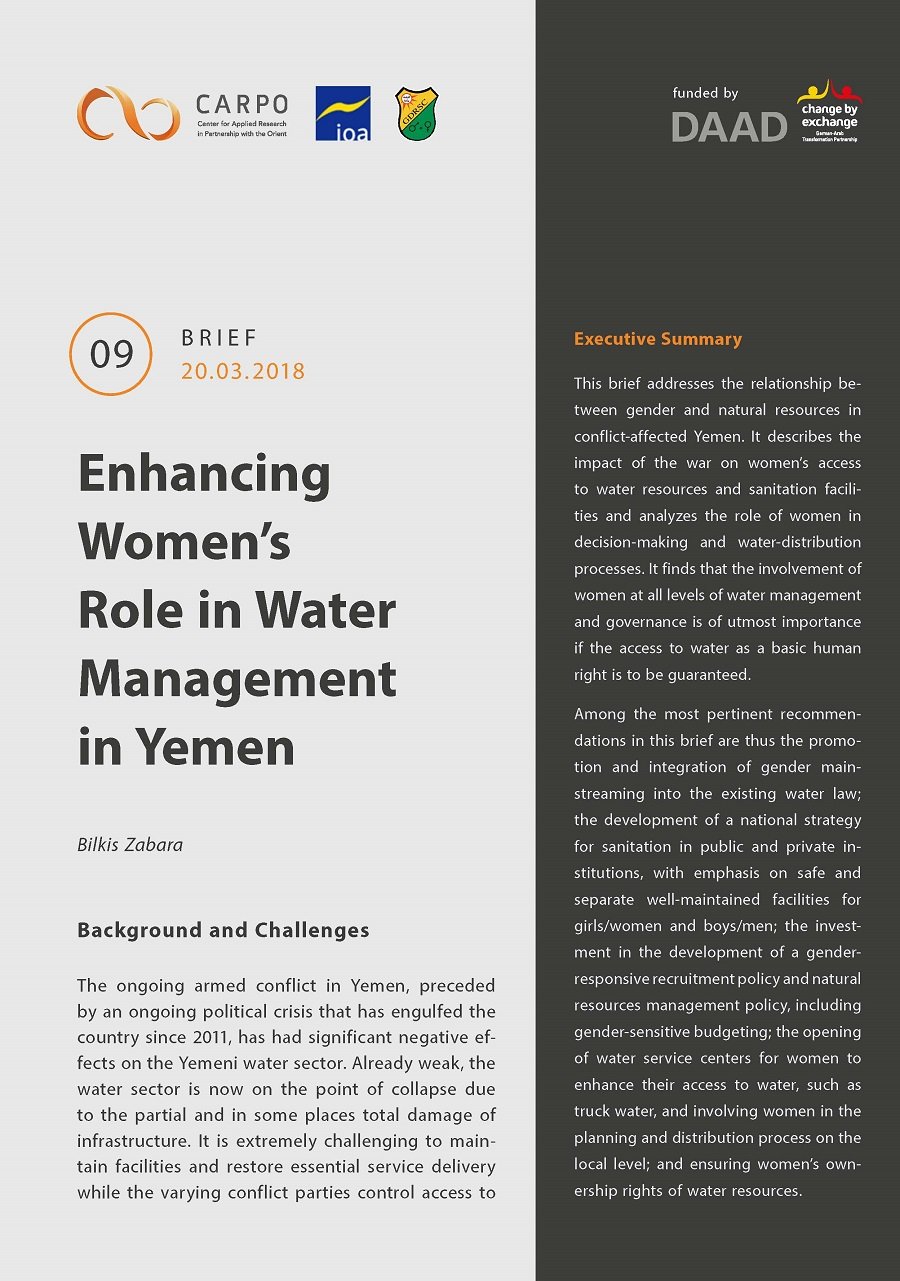by Abdulsalam al-Rubaidi
This Study presents insights into alternative values and visions offered to society by leading contemporary Yemeni novelists with the aim of laying the basis for a better future of their country. CARPO Associate Fellow Abdulsalam al-Rubaidi analyzes six contemporary Yemeni novels, each of which is built around widely debated issues in Yemen, revolving around three main categories: regionalism, religious affiliations, and race. The Study identifies a multidimensional humanistic space as the ultimate goal of literary narration – a vision which is based on love, respect, recognition, rationality, openness, environmental awareness and orientation towards peace.
view CARPO/IOA/GDRSC Study in English or Arabic
view printer-friendly version in English or Arabic








